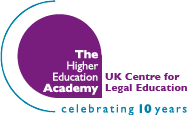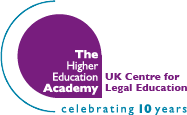Back to the blackboard? Learning how to learn and teach in the ‘shifting sands’ of technology

contributors | abstract | biographies | presentation | paper
Contributors
Karen Clark and Sharon Korek (University of Hertfordshire)
Format
Interactive workshop and discussion forum
Abstract
Much work has been done to encourage the use of diverse and multiplying new teaching technologies.e.g. Dearing (1997), HEFCE (2009) Colleagues at our own institution are among those at the forefront of some developments.E.g. Wikis, podcasts, EVS: Cubric (2007) , Anderson & Hilliard (2007) , Wiggins (2008) These facts coupled with the growth in distance learning University of Hertfordshire’s 2010-15 aspiration is to have 25% of its learning and teaching through distance learning. led us in the academic year 2009/10 to seek an internal institutional grant. We stepped back to measure student satisfaction and experience and reflect on our best practice across the programme.
We planned to trial lots of new ideas – podcast feedback, filmed role play, wikis for assessment, electronic in-class voting etc. Among staff there was willingness to experiment but also inertia about teaching which “seemed to work” and anxiety around the mechanics of change. We conducted focus groups and employed a researcher to question both past and present students about their learning and teaching experience. What we found was student enthusiasm about collaboration and engagement and neutrality about technology. We saw that our focus must shift to articulate our implicit teaching practice, to identify the best of it and to find a way of sharing and coordinating this across the programme. For staff used to teaching as telling, this was a harder, more fundamental challenge than learning to use a new machine.
The first stage of identifying this best practice was an away day for the teaching team where ideas were pooled and findings of the student survey were discussed. This feedback showed a distinct preference for social and collaborative workshop activities A finding endorsed by research e.g. Entwistle (2009) and staff pooled their ideas on these as we put together a tutor handbook of ideas and guidelines to form the basis of engagement in the 2010/11 academic year. We will be trying to embed this across the programme this year.
We have successfully run the flexible campus/distance learning programme since 2007. We have captured what goes on in the classroom using DVRs, camcorders and cameras. This, together with more traditional written materials, has been made available to all via the university’s managed learning environment (Studynet). Asynchronous discussion has also supported learning and periodic online synchronous sessions have also been used. However, for the distance learner the model has been largely one of transmission with support.
Our new programme tries to build in consistent collaborative activity involving both campus and distance learners: e.g. group research, online debates, filmed peer assessment. As staff have begun to more explicitly examine why some activities work better than others we will share with students the rationale for their inclusion, improving meta-cognition and student awareness of their own achievement.
Technology gives us many more options for achieving our goals, but as Coles observes, it is just a tool like “…the roller ball ink pen and the pocket calculator… ”.The Role of New Technology in Improving Engagement among Law Students in Higher Education(2009) We have a new awareness that technology is not itself a goal.Our objective is an online/inclass community of practice Wenger (2002) with engaged, successful students. Clearly legal specialism remains important but a new focus on learning how to learn and teach can build on Laurillard’s conversational framework Rethinking University Teaching (2002) and chime with developments in online learning suggested by Anderson et al.Theory & Practice of Online Learning (2008) and Keynote ALT 2009
Short biographies of panel members
Sharon Korek has been teaching Law at the University of Hertfordshire since 1994. For the last three years she has been the Programme Tutor for the Graduate Diploma in Law, which is currently the only wholly distance learning GDL validated by the SRA. Sharon teaches Land Law and Law of Tort on the programme and is module leader for Land Law and Independent Legal Study. Areas of research include medico-legal issues; additionally Sharon is the Faculty Academic Conduct Officer.
Karen Clark has been teaching law since 2001 and has been distance learning coordinator on the GDL for the past three years. She teaches English Legal System and Public Law on the programme, and European Law, Government & Politics and Human Rights on the LLB. She is a member of the Faculty Learning Teaching and Employability Group.
Last Modified: 1 March 2011



Comments
There are no comments at this time